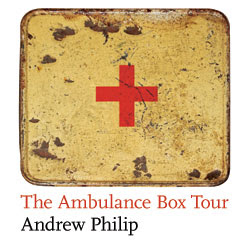America: the dead
People die, but there are no dead in America. The dead are those who are exhumed a year after burial, their bones washed and placed in catacombs or in a special niche in the house, their skulls painted, with jewels set in the eye sockets, their skulls set on spikes around the yard. The dead are those buried in suits of jade to live forever, with the ornaments, weapons, cooking utensils, and food they'll need in the other world. The dead are buried sitting on a chair, facing east. The dead have a rooster carved on their gravestones, to announce the soul's awakening. The dead are the ones for whom incense, candles, paper money, paper cars, paper houses with paper dishwashers and VCR's are burnt. The dead are the ones whose memorial tablets and portraits occupy a prominent place in the living room or in the temple. The dead have graves that are visited with regularity and kept from weeds, or inspire melancholy at their abandonment. The dead have graves where the family picnics once a year and misbehaves. The dead inhabit a place where the living, through chants or trance or solitude or drugs, can talk to them. The dead are those who take possession of the living. The dead are those who come back.
There are no dead in America because there are no corpses. Corpses are the invisible citizens of America, the secret no one tells, far rarer to observe by chance than copulation. We don't see them, we don't touch them, we don't dress them, we don't know what to do with them, we don't keep them in our bedrooms until they are interred, we don't watch their feet sticking out from the shroud as the flames consume them. So many people die on television in America because in our lives no one dies, they only vanish, and television is the great compensator for all we don't have or see.
There are no dead in America because there is no place. The dead are dependent on generations that do not move. The dead have graves where the family knows where the graves are. In America the ancestors are left behind in a nation constructed, like no other, on the pursuit of happiness, a dream of the future where the dead have no place. There is no happiness to pursue among the dead. The country was settled (in its historical era) as an escape from the dead. Except for those who came in the early years to practice their religion - to maintain the old ways - its emigrants have come seeking freedom from the tyranny of the dead and, like released slaves, they must wander and invent themselves. The generations move on, new people, forever "making a new start," holding the ethical ideal of being "born again" in this life.
In the dream of no history, small fears fester and infect. The standard American horror movie plot is the house, the school, the mall built over a forgotten cemetery, and the subsequent revenge of the desecrated: a story unimaginable anywhere else. Visiting the United States in 1944, the Chinese anthropologist Fei Tsao-t'ung reported that "people move about like the tide, unable to form permanent ties with places, to say nothing of other people . . . . Naturally they seldom see ghosts."
from Renga— ten linked prose pieces, published in Jacket 11 and Karmic Traces.

.jpg)





